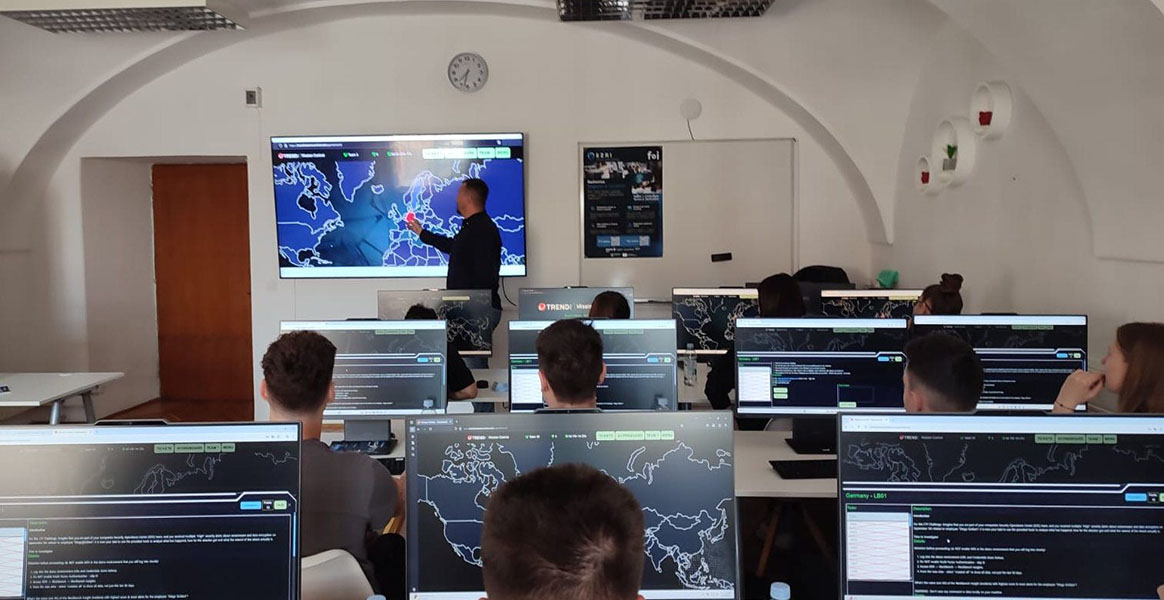
FOI organized practical workshops on responding to cyber incidents as part of the EZRI project
At the Faculty of Organization and Informatics (FOI) in Varaždin on May 27 and 29, 2025, two practical workshops were held in the field of response to cyber incidents, as part of the EZRI project - Education, Protection and Response to Incidents. A total of 30 students attended the workshops, and both sessions were filled in a very short time, which confirms the attractiveness of the topic among students interested in the field of information security.
The workshops were organized by members of the FOI team: Assoc. prof. Igor Tomičić, PhD (head of the EZRI project), Assoc. prof. Petra Grd, PhD and Domagoj Tuličić, M. Inf., with the technical and mentoring support of Matija Mandarić, M. Inf. from Trend Micro. The aforementioned activities are carried out within the framework of the EZRI project, which is financed by Erste Bank through the Erste Cyber Guardian initiative, co-financed by the Digital Europe program of the European Commission.

The goal of the workshops was to empower students by acquiring concrete knowledge and skills related to responding to security incidents - from detection and analysis to coordination and recovery, using the professional XDR tool from Trend Micro. In addition to a theoretical introduction to incident response, participants went through:
- Tabletop simulations of real incidents,
- Practical work in an XDR environment with log analysis and attack vector identification,
- Development of team dynamics and real-time decision-making.
The EZRI project represents a rare and valuable initiative in Croatia that systematically connects the academic community with the challenges of practice, especially in a highly regulated sector such as finance. In this way, FOI lays the foundation for the development of educational modules and laboratory infrastructure that can be used by future generations of students.
During the workshops, knowledge tests were also conducted before and after the training. The results showed significant progress: the average number of correct answers increased from 43.96% before the workshop to 81.67% after the workshop, which indicates the concrete educational value and quality of the approach.

Participant evaluations also confirm the success of the workshops: On a scale of 1 to 5, 29 out of 30 participants gave the lecturers a rating of 5, while one participant gave a rating of 4. The overall workshop rating of 5 was given by 27 out of 30 participants, while 3 participants gave a rating of 4.
For more information about the project and future educational activities, students can contact the project lead: Assoc. Prof. Igor Tomičić, PhD. (itomicic@foi.unizg.hr).